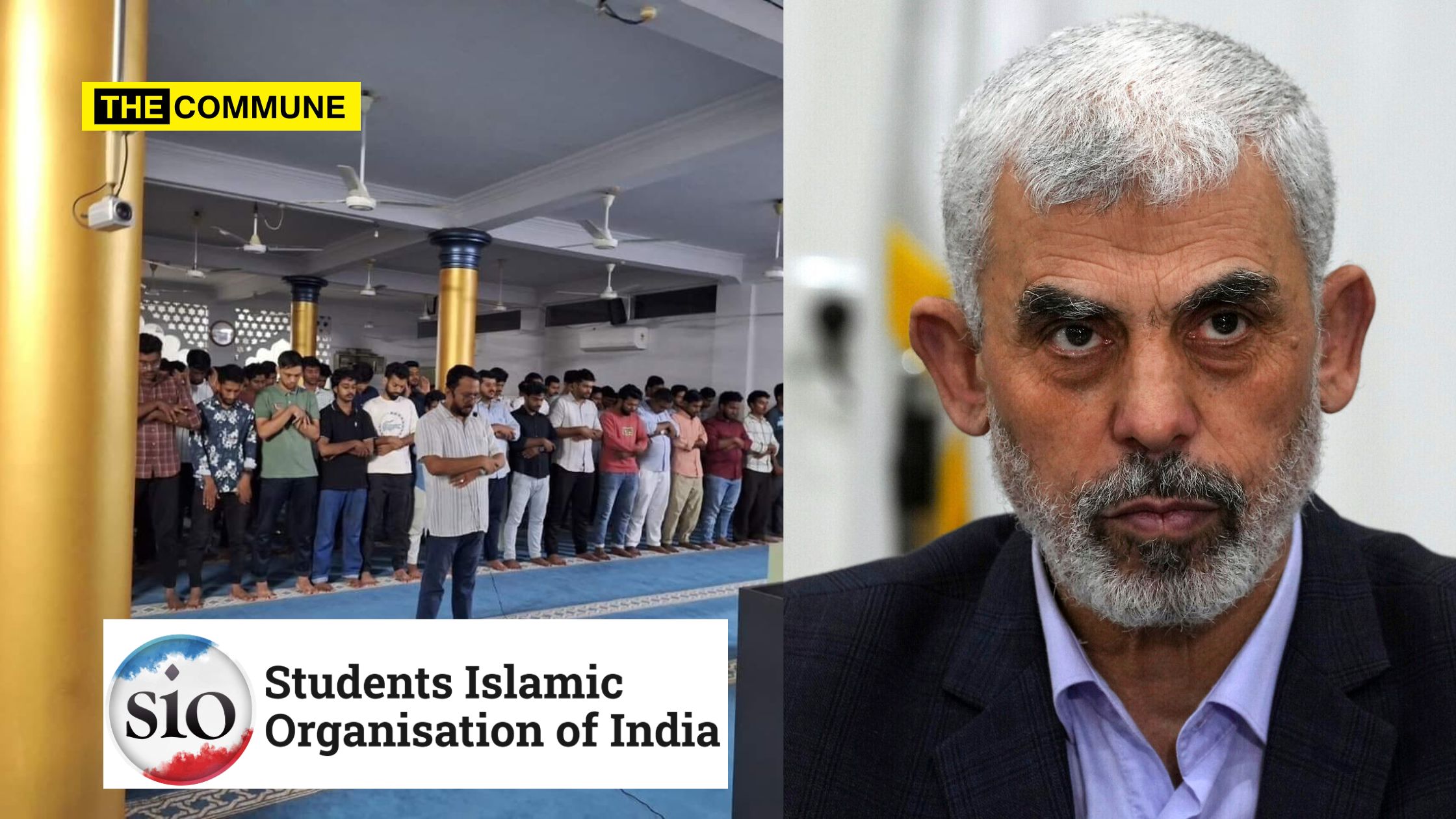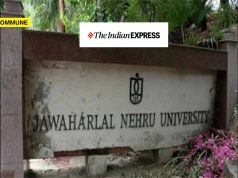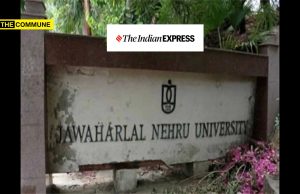
A “Mayyath Niskaram” (funeral prayer) for Yahya Sinwar, the slain leader of Hamas, was organized in Kerala, raising eyebrows and igniting discussions about the complex socio-political landscape of the region. Sinwar was killed four days ago by Israeli forces, following his role as the architect behind the October 7th attack that claimed the lives of 1,200 innocent civilians in Israel. The gruesome nature of the attack, which involved horrific violence and has left a lasting impact on global consciousness, had many hoping for the end of Sinwar’s influence.
Funeral Prayer Organized for Yahya Sinwar in Kerala
Yahya Sinwar, the Hamas leader, was killed four days ago by Israeli forces. As the mastermind behind the October 7th carnage that claimed 1,200 innocent lives in Israel, his death must have brought relief to many. The horrific… pic.twitter.com/Tb5qE3M87v
— Anand #IndianfromSouth (@Bharatiyan108) October 22, 2024
The organization of a funeral prayer for a terrorist has shocked many, particularly as no such prayers seem to have been held even in Islamic nations, underscoring a unique divergence in perspectives within the Indian state. Kerala, often touted as a beacon of literacy, education, and secularism, has once again found itself at the centre of a contentious debate on faith and political allegiance.
The prayer was organized by the Student’s Islamic Organization (SIO), a youth wing of Jamat-e-Islami, a group known for its Islamic activism. Photos of the event were widely circulated on social media, featuring Samad Kunnakav, assistant secretary of Jamat-e-Islami Kerala, leading the prayer. The gathering not only serves as a remembrance of Sinwar but also raises questions about the ideological affiliations and sentiments that exist within certain segments of Kerala’s population.
The SIO’s Facebook page for Ernakulam publicized the event, depicting Sinwar as a “valiant warrior” and showcasing images of the gathering, which drew participation from local youths and students. This incident is particularly alarming given Kochi’s history of similar rituals, including a funeral prayer for Ajmal Kasab, one of the perpetrators of the November 26, 2008, Mumbai attacks, and for Afsal Guru, a convict in the Parliament attack.
On October 7th, SIO, Jamaat-e-Islami’s student wing, celebrated the horrific anniversary of attack on israel, openly endorsing terrorism. And now they've organized funeral prayers for Hamas terrorist Yahya Sinwar. #Kerala has become a breeding ground for terror sympathizers… pic.twitter.com/ZGPiUtyvv5
— Shanthi Kumar (@BJPShanthikumar) October 20, 2024
The Mayyath Niskaram for Sinwar has prompted widespread criticism, with many users expressing fears that Kerala is becoming a breeding ground for terrorism. Sinwar’s previous statements about expanding Hamas influence into Bharat have only intensified these sentiments, revealing a troubling animosity among some towards the nation.
Yahya Sinwar was killed in Gaza last week, with Israeli forces releasing images of his body, notably depicting him attempting to throw an object at a drone during the incident. The exact location of the SIO’s Mayyath Niskaram remains unclear, but a poster indicated that a Shahadath March and condolence prayer were organized at Heera Complex in Aluva, near Kochi. Notably, a senior officer from the Kerala Police’s Special Branch stated that he was unaware of the event.
This incident follows a recent protest in Kochi against Sinwar’s killing, with authorities now investigating the demonstration and identifying participants through photographs. There is a rising concern that Kerala has become a safe haven for Islamic terrorists, a trend largely attributed to the region’s vote bank politics. Both the ruling CPM-led Left Democratic Front (LDF) and the opposition Congress-led United Democratic Front (UDF) are seen as competing to appease extremist factions, often sidelining nationalist issues.
In October 2023, in Malappuram former Hamas chief Khaled Mashal addressed attendees via live video. The event was conducted by Solidarity Youth Movement (Kerala Youth Wing of Jamaat-e-Islami Hind) who invited Khaled Mashal, a founding member of Hamas, to speak at the rally where anti-Hindu slogans were raised. During a roughly seven-minute video address, Mashal urged attendees to provide unconditional support to Hamas and reportedly made anti-Hindu remarks. Visuals from the rally showed banners with slogans such as “Uproot Bulldozer Hindutva & Apartheid Zionism.” Following his speech, the audience responded with applause and chants calling for the uprooting of “Zionism” through intifada.
Kerala: Youth Wing of Jamaat-e-Islami Hind, CPI(M) and CONgress invited Qatar Backed Hamas founding member Khaled Mashal to speak on their program.
"Uproot Hindutva" poster was also included in it.
Indian Mujeets, Terrorists Hamas, Genocidal Commies and Hindu Hating Congress… pic.twitter.com/e9xsWWJuf9
— Arun Pudur (@arunpudur) October 28, 2023
Such events reveal a disturbing trend: the alarming support for terrorist organizations like Hamas eclipses the urgent need for peace and coexistence, raising serious concerns about the future of communal harmony in the region.
Additionally, we must recollect the unanimous resolution passed by the Kerala Assembly in March 2006 calling for the release of Abdul Nasar Madani, linked to the 1998 Coimbatore bomb blasts. Both fronts have united in their opposition to the Citizenship Amendment Act (CAA) and the Farm Laws, suggesting a contradictory approach towards nationalistic sentiments.
The decision to honor a terrorist like Sinwar in Kerala reflects a stark reality: for some in Kerala, the commitment to faith and the ambition to propagate Islamic principles appear to overshadow the universally recognized tenets of humanity and peace.
Kerala has seen a disturbing trend in recent years as we know a notable number of its Muslim youth have joined IS and other terrorist organizations. Such affiliations point to the extent of radicalization within the Muslim community. In the wake of this event, many are left questioning how such displays of support for terrorists like Sinwar will impact communal relations in Kerala and what this signifies for the broader discourse on terrorism and violence in contemporary society.
The willingness to celebrate a terrorist underscores a deeper affinity for extremism that cannot be ignored, necessitating a critical examination of the ideologies that are taking root in a region once celebrated for its secular values.
(With inputs from Organiser)
Subscribe to our Telegram, WhatsApp, and Instagram channels and get the best stories of the day delivered to you personally.




